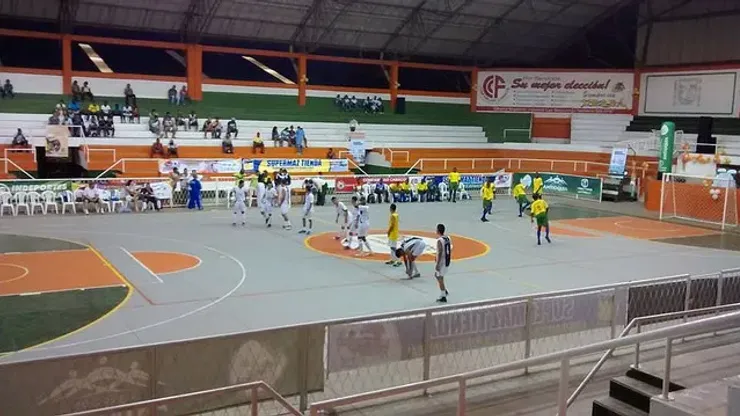The UEFA Champions League matches that featured Premier League clubs last week really emphasized the gulf in class that currently exists between the top teams in England and the giants that lead the way in the Spanish and German divisions.
In soccer, I was always told to “make the ball do the work” and there was no better example of this when Barcelona and Bayern Munich took apart Manchester City and Arsenal respectively. Without a doubt, there were pivotal moments in both games that impacted the final outcome, but it would be short-sighted to overlook the great divide in the technical ability between the sides and their ability to retain possession with consummate ease.
Having spent the last few months playing 3-a-side soccer (more commonly known as futsal), it has drilled home to me that in England we spend too much time trying to turn athletes into footballers rather than footballers into athletes. So many of our players are big, powerful units who can run all day long but so often it seems we turn a blind eye to those flair players who can add that touch of magic that Andres Iniesta and Toni Kroos provided to light up both encounters.
Even though it was Lionel Messi who scored the goal, it was Iniesta who showed the vision to open up City’s defense with a sublime through-ball. As for Kroos, he produced a midfield masterclass that would require Manchester United to cough up a lot more than the absurd sum of money that they are now reported to be paying Wayne Rooney. Aside from his magnificent goal, the 24-year-old completed 147 passes (the same number of passes made in total by all of the Arsenal outfield players combined) and attempted 121 passes in the Arsenal half, completing 96.1% of them — stunning figures by anyone’s standards.
These mesmerizing statistics highlight that beautiful soccer is best demonstrated in its simplicity. If you dominate possession in the way Barcelona and Bayern Munich did, then you increase your opportunity to win tenfold because when your opponents don’t have the ball, they can’t score. This along with the physical and mental exertion that both chasing and not having possession of the ball has on your opponent is another reason why playing against this method must be demoralizing. To carry out this approach in the backyards of two of Europe’s finest teams takes bravery, as well as incredible levels of competence to keep finding those pockets of space.
I know in England we pride our play on its frenetic pace and the remarkable levels of power and fitness that are required for the majority of players to succeed in the Premier League. However we could certainly take a leaf out of the books of countries such as Brazil and Spain who have had much success in futsal over the years. This variant of soccer is growing in England and this style of one and two touch passing combined with fluid and interchangeable movement means that there is a clear focus on producing an accomplished first touch and retaining possession, but wherever possible trying to play a positive pass, moving the ball forward. This style of soccer is certainly going to be the most effective when the World Cup commences in the stifling Brazilian heat in four months time.
It will certainly take a brave person to bet against Barcelona or Bayern Munich making the last eight of the competition after the scores from the first leg. Heart and desire can only take you so far in soccer, so maybe this wake up call can see the possession game find a home in the Premier League. I would hate for us to kill off the passion and trademark speed that our league brings to the beautiful game, but I don’t think that this style of play can continually handle the knockout punches that the continental approach continues to deliver us. When my father first saw this magnificent Barcelona team he used the phrase “death by possession.” And if last week is anything to go by, death by possession is most certainly alive and well in the modern game.
200+ Channels With Sports & News
- Starting price: $33/mo. for fubo Latino Package
- Watch Premier League, Women’s World Cup, Euro 2024 & Gold Cup
The New Home of MLS
- Price: $14.99/mo. for MLS Season Pass
- Watch every MLS game including playoffs & Leagues Cup
Many Sports & ESPN Originals
- Price: $10.99/mo. (or get ESPN+, Hulu & Disney+ for $14.99/mo.)
- Features Bundesliga, LaLiga, Championship, & FA Cup
2,000+ soccer games per year
- Price: $5.99/mo
- Features Champions League, Serie A, Europa League & Brasileirāo
175 Premier League Games & PL TV
- Starting price: $5.99/mo. for Peacock Premium
- Watch 175 exclusive EPL games per season






